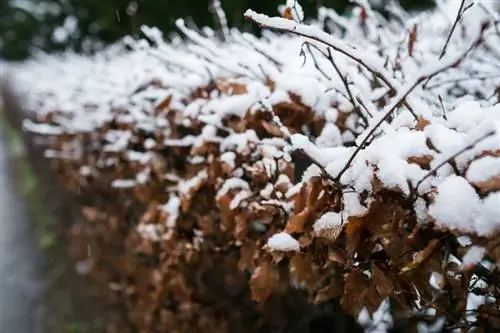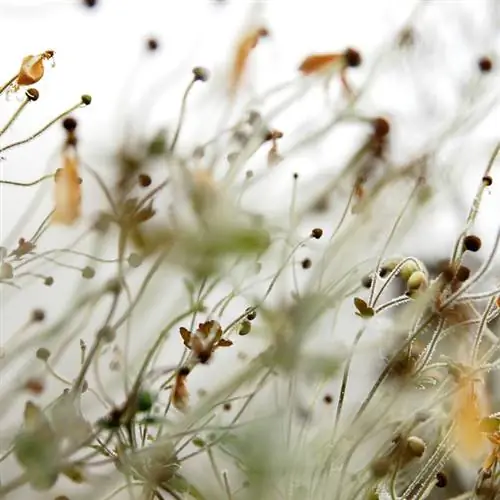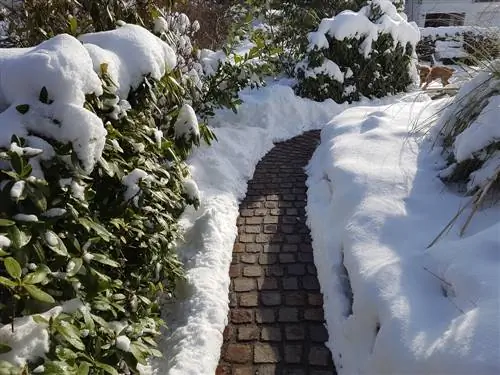- Author admin leonars@hobbygardeners.com.
- Public 2023-12-16 16:46.
- Last modified 2025-01-23 11:20.
Wild blueberries are automatically protected to a certain extent from the effects of the weather in the boggy forest floor. In contrast, cultivated blueberries in the home garden sometimes need winter protection in particularly frosty temperatures.

How to protect blueberries in winter?
To protect blueberries in winter, plants in pots should be moved to a protected winter quarters. Blueberries grown outdoors can be protected from frost with materials such as grass clippings, straw, bark mulch, fir cuttings or fleece mats. Be careful to avoid waterlogging.
Growing blueberries in pots
In locations with particularly harsh winters, blueberries can also be grown in a sufficiently large pot with suitable substrate. Then it's no problem to move them to a somewhat sheltered winter quarters in the winter. However, the blueberries should not be kept too warm here either, as this would contradict their natural needs.
Overwintering blueberries outdoors
Most varieties of cultivated blueberries can also be overwintered outdoors at a location that is not too high up. However, you should then protect the planted blueberries from the winter cold with the following materials:
- Grass clippings
- Straw
- Bark mulch
- Fir tree cut
- Fleece mats
Tips & Tricks
Especially in winter, blueberry plants should be protected from waterlogging so as not to be damaged by the winter cold.






